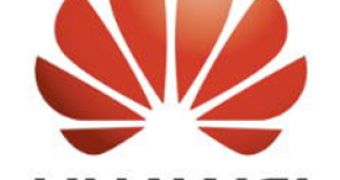Huawei, a worldwide leading telecommunications infrastructure provider, has announced recently that it plans on delivering a 56Mb/s HSPA+ (High Speed Packet Access Plus) commercial solution to the market starting with next year. According to the company, its solution is meant to enable wireless carriers all around the world to deliver twice the download speeds that are available at the moment via HSPA+ networks.
The upcoming 56Mb/s HSPA+ solution from Huawei includes multi-carrier and MIMO (multiple-input-multiple-output) technologies, the company stated. At the same time, it also added that it managed to successfully showcase the impressive speeds that the new solution can deliver in Beijing at P&T/Wireless & Networks Comm China 2009.
“Advances in mobile broadband, particularly record breaking data speeds and capacity of HSPA networks, have had a profound impact on the telecom industry and demonstrate the enormous potential of UMTS/HSPA,” Wan Biao, president of Wireless, Huawei, commented on the announcement. “This 56Mb/s HSPA+ solution will enable operators to maintain their industry leading positions and provide consumers with an evermore attractive mobile broadband experience.”
Mobile phone operators around the world that are already using the company's fourth-generation and 38xx series base stations can easily leverage their existing networks to 56Mb/s HSPA+ through a simple software upgrade. Moreover, the new solution will enable carriers to deliver leading-edge services via significant cost savings, while also considerably speeding the deployment of the new network, the infrastructure vendor stated.
There are more than 10 commercial HSPA+ networks that Huawei has already deployed as of August 2009. According to the company, it has rolled out a commercial 28Mb/s HSPA+ network in Asia Pacific, and also deployed HSPA+ networks that can deliver downlink throughput of up to 21Mb/s in partnership with wireless carriers like Japan EMOBILE, Singapore StarHub, Vodafone Turkey and Hong Kong PCCW.

 14 DAY TRIAL //
14 DAY TRIAL //